Glass returned to recycling bins in Ipswich City Council after three-year hiatus, red-lid bins will only be collected fortnightly
On-demand kerbside collection is being considered as part of a new strategy and the council will only empty red-lid bins once a fortnight as part of a planned overhaul.
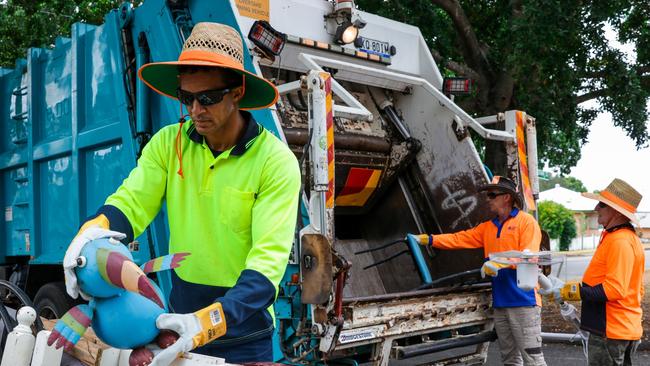
Ipswich
Don't miss out on the headlines from Ipswich. Followed categories will be added to My News.
IPSWICH residents can start putting glass back into their recycling bins after a three-year absence and on-demand kerbside collection models are being explored as part of the council’s “overdue” waste plan.
A trial involving 1000 homes aimed at curbing the huge amount of food wastage across the city through the council’s existing green-lid bins will begin next month with plans to implement it city-wide by 2024.
The council will only empty red-lid bins once a fortnight as part of the overhaul.
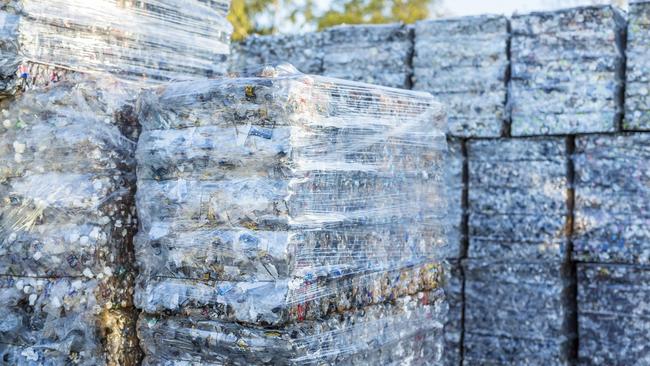
It is part of a 10-year strategy adopted by Ipswich councillors designed to reduce the amount of waste going into landfill, while improving services for the region’s booming population.
The Ipswich Resource Recovery Strategy for 2021-2031 has been adopted to replace the Materials Recovery Plan introduced in 2017.
On average a household in Ipswich generates about one tonne of waste and recyclable material a year.
The city generated 107,700 tonnes of rubbish during the 2019-20 financial year, with just under a quarter of that able to be recycled.
By 2031, the amount of waste thrown out by Ipswich residents annually is expected to be more than 175,000 tonnes.
The city is one of the fastest growing in Queensland with its population of 240,000 expected to more than to double to 557,000 by 2041.
LOCAL NEWS: $22m interchange rescue plans scrapped with upgrade still years away
Over the past five years there has been a decrease in the overall resource recovery rate in Ipswich from 32 per cent in 2015-16 to 23 per cent in 2019-20.
General recycling rates have decreased on average by more than 60 kilograms per person and green waste recycling has decreased by more than 27 kilograms per person.
The council says this is due to various reasons including the removal of glass from the city’s kerbside recycling service, which was scrapped in 2018 due to the contamination of paper and cardboard recycled in the yellow-lid bin.
The state government’s waste levy, introduced in July 2019, is $85 per tonne for general household waste but offset by a rebate paid by the government to the council.
“This waste levy rebate will remain in effect until June 2022, after which it is anticipated the city’s ratepayers may need to pay part or all of the levy amount on any material they generate and is disposed of in landfill,” the council’s strategy noted.
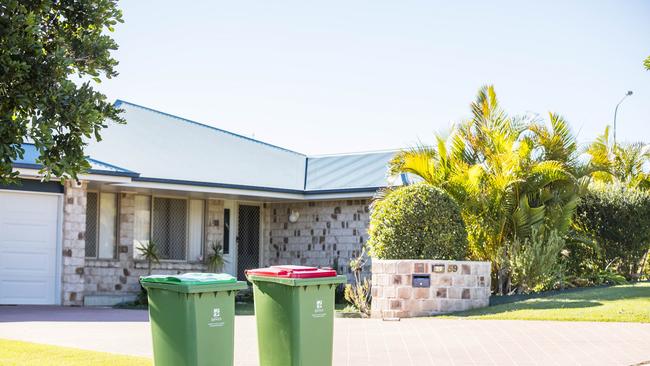
“This strategy sets out a responsible plan to mitigate as far as practicable, the financial impacts that the removal of the Queensland Government’s waste levy rebate will have on the ratepayers of Ipswich.”
The city’s new strategy has set goals to reduce its generation of household waste by 25 per cent, divert waste from landfill by a total of 95 per cent and increase recycling of local waste by 70 per cent - all by 2050.
About 300 tonnes of glass have been collected by the council through its collection points since they were established in 2018.
Audits conducted late last year found this only makes up nine per cent of all glass collected by the city; about 50 per cent of glass was being sent to landfill via red-lid bins and 41 per cent was being placed in yellow-lid bins.
More than 90 per cent of residents who responded to community survey wanted glass introduced to the yellow-lid recycling bins and this has now been granted.
The audits found more than 15,500 tonnes of compostable organics has been collected through red-lid bins and sent to landfill over the past financial year.
READ MORE: Workers needed as concrete plant gets approval
This year the council will rebrand its opt-in green-lid waste service to become known as a food organics and garden organics, or FOGO, service.
The organisation intends to ramp up promotion of the green-lid bins with a free year-long trial to include about 1000 properties in Raceview and Bellbird Park to get going in August.
They will be collected once a week.
Residents have already been able to put food waste into their green-lid bins but the council intends to launch an extensive education campaign about it in the coming months to improve understanding.
It is planned to introduce the service city-wide by 2024.
The council intends to revise its collection cycle upon the rollout of the “three core bin system” in 2023-24, which will see the green-lid collected once a week and yellow and red-lid bins both collected once a fortnight.
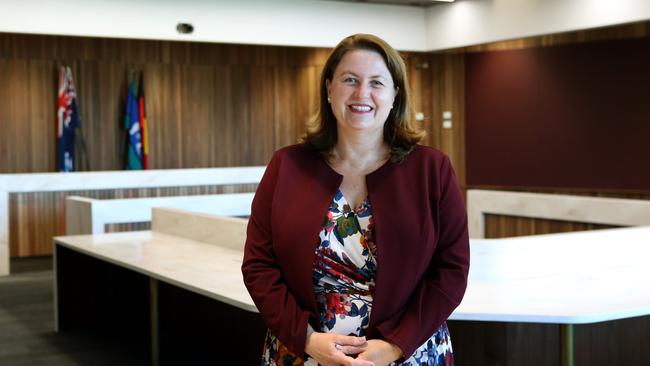
The return of kerbside collection is another highlight after a two-year hiatus.
Mayor Teresa Harding said much had changed since the council’s previous plan adopted in 2017, including international and national bans on exporting waste and recyclable materials, introduction of new schemes such as Containers for Change, the state’s waste levy, and the state and federal governments’ “ambitious” waste reduction targets.
“In the southern states they are doing these FOGOs and that has been successful,” she said.
“Queensland is just coming to terms with it. Other councils such as Townsville and Rockhampton are looking at doing this at the same time as us.
“Over the next two years we’re going to be looking at doing an on-demand kerbside collection. We have to look at what are the costs and the pitfalls. Kerbside collection costs over $1 million.
“I guess we’re in a unique situation where we take in 42 per cent of the state’s waste in eight privately-run landfills. Only six per cent is (household waste). The other 94 per cent is demolition and commercial and industrial waste.
“They’re two very separate issues.
“It’s not going to change overnight. It’s going to take time for us and the public.”
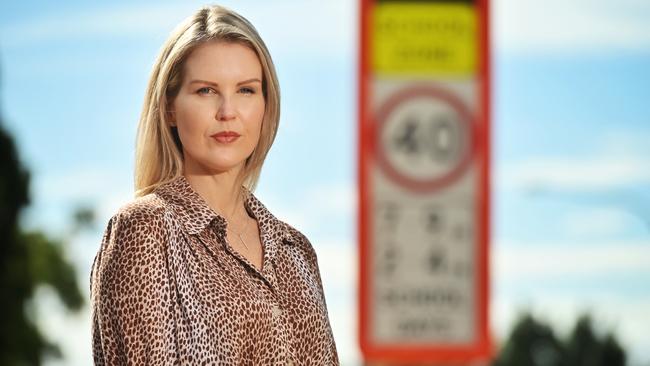
Deputy Mayor Nicole Jonic said the new strategy was well overdue and one of the main issues raised by her constituents was about returning glass to recycling bins.
“(Council staff) went out and drafted it and went to community consultation all within that first year of us getting elected,” she said.
“It’s about setting the policy and the directive for how we want the industries, the council and our public to see what we’re doing and what we want to achieve in the future.”
The Division 2 councillor said the council wanted to improve communication between residents and the organisation so it was clearer what was working in terms of waste and what wasn’t.
“It’s not just going to be a one plan fits all,” Cr Jonic said.
“In the end we’re all going on a bit of an educational journey. This is where we’re starting.
“We want feedback good and bad so we can shape it into something great.”
Read more stories by Lachlan McIvor here.




